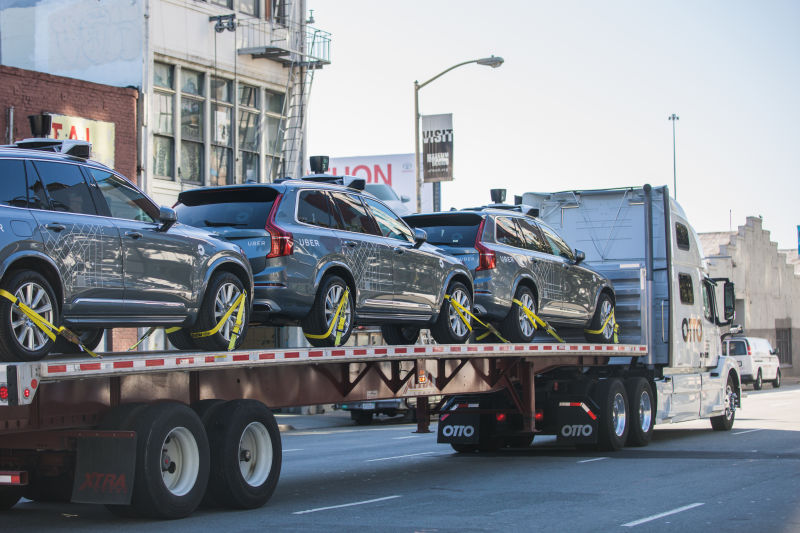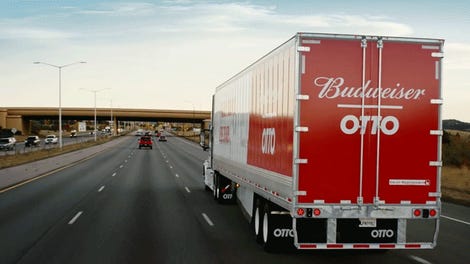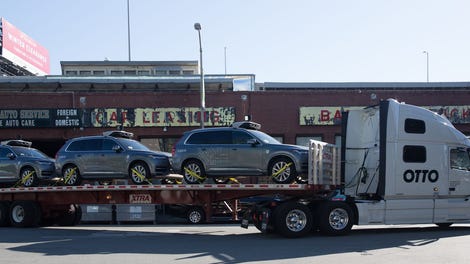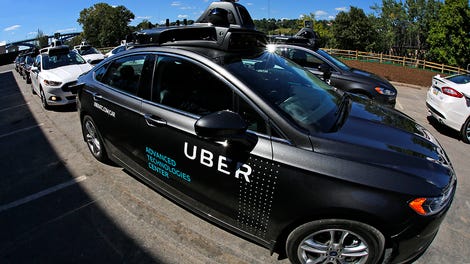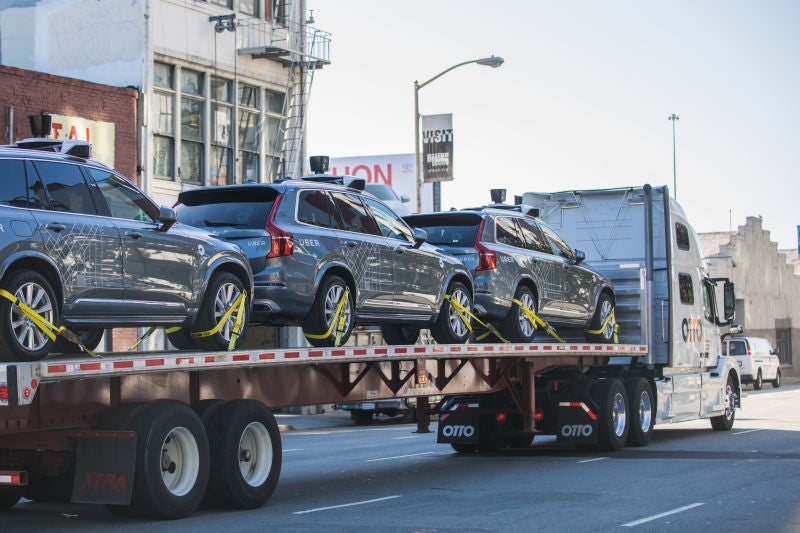
Uber’s silly dustup in December with California’s DMV over its self-driving pilot program turned on the ride-hailing giant’s refusal to pay $150 for a permit that would’ve legally allowed it to use autonomous vehicles on the state’s roadways. A new document suggests Uber’s self-driving truck company, Otto, may also be willfully violating the state’s law.
Uber’s argument for why it never sought a permit from the state was that its vehicles didn’t meet California’s definition of an autonomous vehicle. California said that was a joke. We all know how that ended.
Advertisement
Advertisement
Well, Car & Driver got a hold of some internal Otto documents, and the company — which has reportedly been self-driving tech with its trucks for over a year — itself seems to think it fits the bill of an autonomous tech tester. From Car & Driver:
A spokesperson for the subsidiary said Otto does not need a permit because it only tests driver-assist technologies that are similar to vehicle safety systems sold by auto manufacturers today, features that include collision-avoidance systems, adaptive cruise control, and lane-keeping assist. Those systems do not fall within the purview of California’s autonomous-vehicle regulations, which were established in 2014.
But an Otto software engineer tells a different story. In a company document obtained by Car and Drivervia a public records request, he reveals the company’s procedures for testing a more extensive self-driving system on California public roads. This system experiences anomalies, commonly known as disengagements, that Otto says carry varying levels of safety threats.
The document describes Otto’s testing as concerning not simpler driver-assist technologies, but rather a “self-driving system” that operates in “self-driving mode” on California public roads. Without a permit, this testing may run afoul of the state’s regulations, setting up a potential second confrontation between Otto’s parent company and DMV regulators. California’s DMV is examining whether this testing violates state regulations.
After an inquiry from the auto magazine, a spokesperson for California’s DMV said Otto “assured the department” that its trucks can’t operate autonomously. “We will look into it further,” the spokesperson told Car & Driver.
Submitting for a permit would require Otto to file an annual disengagement report, that is, how many times a driver had to assume control of a vehicle from the autonomous system. It’s widely viewed as an important tool to gauge how self-driving tech is performing.
Sponsored
For Uber, the company reportedly valued at $69 billion still has a friend in Arizona, whose governor is doing somersaults over its decision to ship its self-driving vehicles there for a new pilot program. How sweet.

